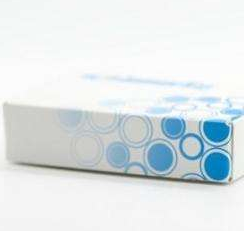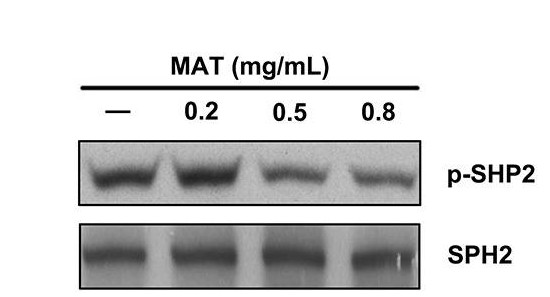SH-PTP2 (phospho Tyr542) Polyclonal Antibody
- Catalog No.:YP0581
- Applications:WB;IHC;IF;ELISA
- Reactivity:Human;Mouse;Rat
- Target:
- SH-PTP2
- Fields:
- >>Ras signaling pathway;>>Phospholipase D signaling pathway;>>Axon guidance;>>C-type lectin receptor signaling pathway;>>JAK-STAT signaling pathway;>>Natural killer cell mediated cytotoxicity;>>Leukocyte transendothelial migration;>>Neurotrophin signaling pathway;>>Adipocytokine signaling pathway;>>Insulin resistance;>>Epithelial cell signaling in Helicobacter pylori infection;>>Pathogenic Escherichia coli infection;>>Herpes simplex virus 1 infection;>>Proteoglycans in cancer;>>Chemical carcinogenesis - reactive oxygen species;>>Renal cell carcinoma;>>Chronic myeloid leukemia;>>PD-L1 expression and PD-1 checkpoint pathway in cancer
- Gene Name:
- PTPN11
- Protein Name:
- Tyrosine-protein phosphatase non-receptor type 11
- Human Gene Id:
- 5781
- Human Swiss Prot No:
- Q06124
- Mouse Gene Id:
- 19247
- Mouse Swiss Prot No:
- P35235
- Rat Gene Id:
- 25622
- Rat Swiss Prot No:
- P41499
- Immunogen:
- The antiserum was produced against synthesized peptide derived from human SHP-2 around the phosphorylation site of Tyr542. AA range:508-557
- Specificity:
- Phospho-SH-PTP2 (Y542) Polyclonal Antibody detects endogenous levels of SH-PTP2 protein only when phosphorylated at Y542.
- Formulation:
- Liquid in PBS containing 50% glycerol, 0.5% BSA and 0.02% sodium azide.
- Source:
- Polyclonal, Rabbit,IgG
- Dilution:
- WB 1:500 - 1:2000. IHC 1:100 - 1:300. ELISA: 1:40000.. IF 1:50-200
- Purification:
- The antibody was affinity-purified from rabbit antiserum by affinity-chromatography using epitope-specific immunogen.
- Concentration:
- 1 mg/ml
- Storage Stability:
- -15°C to -25°C/1 year(Do not lower than -25°C)
- Other Name:
- PTPN11;PTP2C;SHPTP2;Tyrosine-protein phosphatase non-receptor type 11;Protein-tyrosine phosphatase 1D;PTP-1D;Protein-tyrosine phosphatase 2C;PTP-2C;SH-PTP2;SHP-2;Shp2;SH-PTP3
- Observed Band(KD):
- 70kD
- Background:
- The protein encoded by this gene is a member of the protein tyrosine phosphatase (PTP) family. PTPs are known to be signaling molecules that regulate a variety of cellular processes including cell growth, differentiation, mitotic cycle, and oncogenic transformation. This PTP contains two tandem Src homology-2 domains, which function as phospho-tyrosine binding domains and mediate the interaction of this PTP with its substrates. This PTP is widely expressed in most tissues and plays a regulatory role in various cell signaling events that are important for a diversity of cell functions, such as mitogenic activation, metabolic control, transcription regulation, and cell migration. Mutations in this gene are a cause of Noonan syndrome as well as acute myeloid leukemia. [provided by RefSeq, Aug 2016],
- Function:
- catalytic activity:Protein tyrosine phosphate + H(2)O = protein tyrosine + phosphate.,disease:Defects in PTPN11 are a cause of juvenile myelomonocytic leukemia (JMML) [MIM:607785]. JMML is a pediatric myelodysplastic syndrome that constitutes approximately 30% of childhood cases of myelodysplastic syndrome (MDS) and 2% of leukemia. It is characterized by leukocytosis with tissue infiltration and in vitro hypersensitivity of myeloid progenitors to granulocyte-macrophage colony stimulating factor.,disease:Defects in PTPN11 are a cause of Noonan-like syndrome [MIM:163955]; also known as Noonan-like/multiple giant cell lesion syndrome. It is an autosomal dominant disorder characterized by Noonan features associates with giant cell lesions of bone and soft tissue.,disease:Defects in PTPN11 are the cause of LEOPARD syndrome [MIM:151100]. It is an autosomal dominant disorder allelic with Noonan
- Subcellular Location:
- Cytoplasm . Nucleus .
- Expression:
- Widely expressed, with highest levels in heart, brain, and skeletal muscle.
Y772 phosphorylation of EphA2 is responsible for EphA2-dependent NPC nasopharyngeal carcinoma growth by Shp2/Erk-1/2 signaling pathway. Cell Death & Disease Cell Death Dis. 2020 Aug;11(8):1-14 IHC Mouse 1 : 200 NPC cell-xenograft
Isotoosendanin exerts anti-tumor effects in NSCLC by enhancing the stability of SHP-2 and inhibiting the JAK/STAT3 pathway PHYTOMEDICINE Chenying Shu WB Human A549 cell, HCC827 cell, H838 cell
- June 19-2018
- WESTERN IMMUNOBLOTTING PROTOCOL
- June 19-2018
- IMMUNOHISTOCHEMISTRY-PARAFFIN PROTOCOL
- June 19-2018
- IMMUNOFLUORESCENCE PROTOCOL
- September 08-2020
- FLOW-CYTOMEYRT-PROTOCOL
- May 20-2022
- Cell-Based ELISA│解您多样本WB检测之困扰
- July 13-2018
- CELL-BASED-ELISA-PROTOCOL-FOR-ACETYL-PROTEIN
- July 13-2018
- CELL-BASED-ELISA-PROTOCOL-FOR-PHOSPHO-PROTEIN
- July 13-2018
- Antibody-FAQs
- Products Images
.jpg)
- Xiang, YP., Xiao, T., Li, QG. et al. Y772 phosphorylation of EphA2 is responsible for EphA2-dependent NPC nasopharyngeal carcinoma growth by Shp2/Erk-1/2 signaling pathway. Cell Death Dis 11, 709 (2020).

- Western Blot analysis of various cells using Phospho-SH-PTP2 (Y542) Polyclonal Antibody diluted at 1:1000
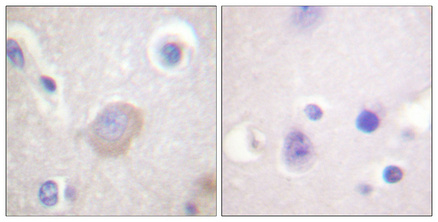
- Immunohistochemical analysis of paraffin-embedded Human brain. Antibody was diluted at 1:100(4° overnight). High-pressure and temperature Tris-EDTA,pH8.0 was used for antigen retrieval. Negetive contrl (right) obtaned from antibody was pre-absorbed by immunogen peptide.

- Enzyme-Linked Immunosorbent Assay (Phospho-ELISA) for Immunogen Phosphopeptide (Phospho-left) and Non-Phosphopeptide (Phospho-right), using SHP-2 (Phospho-Tyr542) Antibody
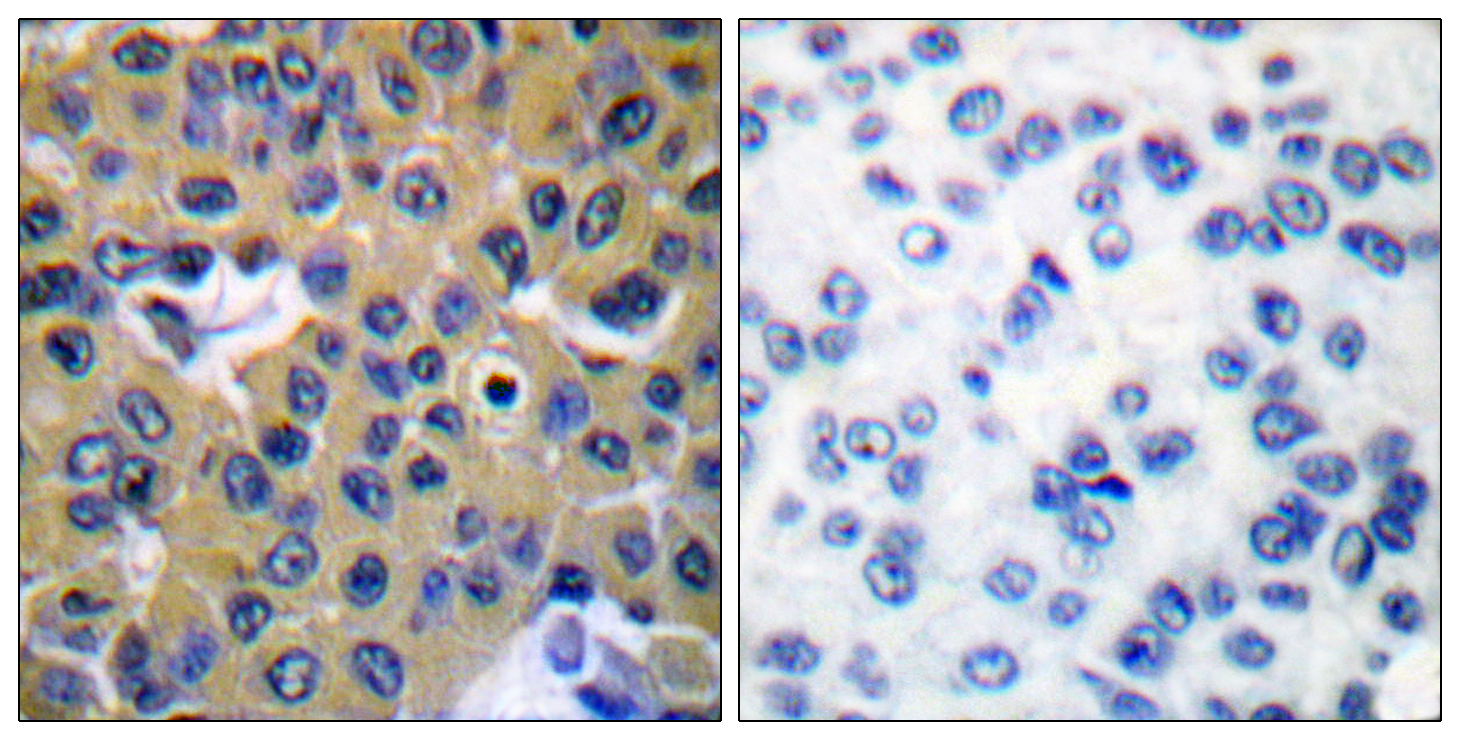
- Immunohistochemistry analysis of paraffin-embedded human breast carcinoma, using SHP-2 (Phospho-Tyr542) Antibody. The picture on the right is blocked with the phospho peptide.
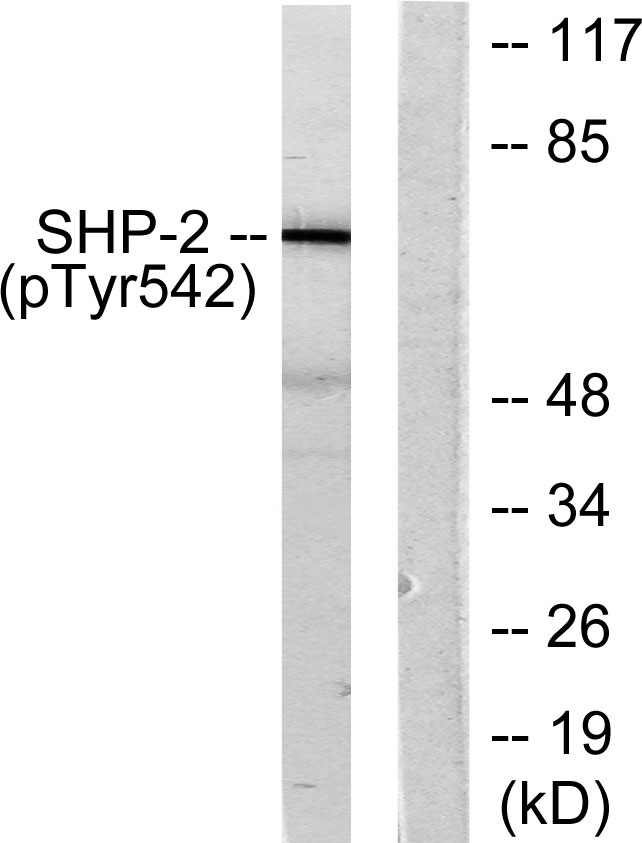
- Western blot analysis of lysates from A431 cells, using SHP-2 (Phospho-Tyr542) Antibody. The lane on the right is blocked with the phospho peptide.
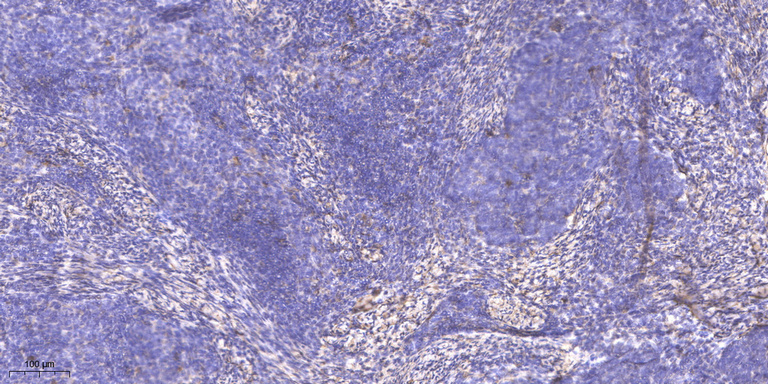
- Immunohistochemical analysis of paraffin-embedded human cervical carcinoma. 1, Antibody was diluted at 1:200(4° overnight). 2, Tris-EDTA,pH9.0 was used for antigen retrieval. 3,Secondary antibody was diluted at 1:200(room temperature, 45min).
